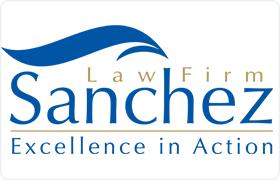Simonton Credit & Debt Lawyer, Texas
Sponsored Law Firm
-
 x
x

Click For More Info:
-
Sanchez Law Firm
150 W. Parker Rd. 3rd Floor Houston, TX 77076» view mapReal Estate Excellence In Action
We advocate for our clients in and out of court. When you and the system meet head on, you need an attorney who is experienced, credible, and active.
800-785-3351
John Robert Jones
Bankruptcy & Debt, Credit & Debt, Intellectual Property, Bankruptcy
Status: In Good Standing Licensed: 34 Years
Charles C. Gregory
Litigation, Environmental Law Other, Business & Trade, Credit & Debt
Status: In Good Standing Licensed: 42 Years
S Robert Fling
Construction, Litigation, Business & Trade, Credit & Debt
Status: In Good Standing Licensed: 20 Years
David Frishman
Construction, Litigation, Administrative Law, Credit & Debt
Status: In Good Standing Licensed: 52 Years
 Benjamin Sanchez Houston, TX
Benjamin Sanchez Houston, TX Practice AreasExpertise
Practice AreasExpertise
